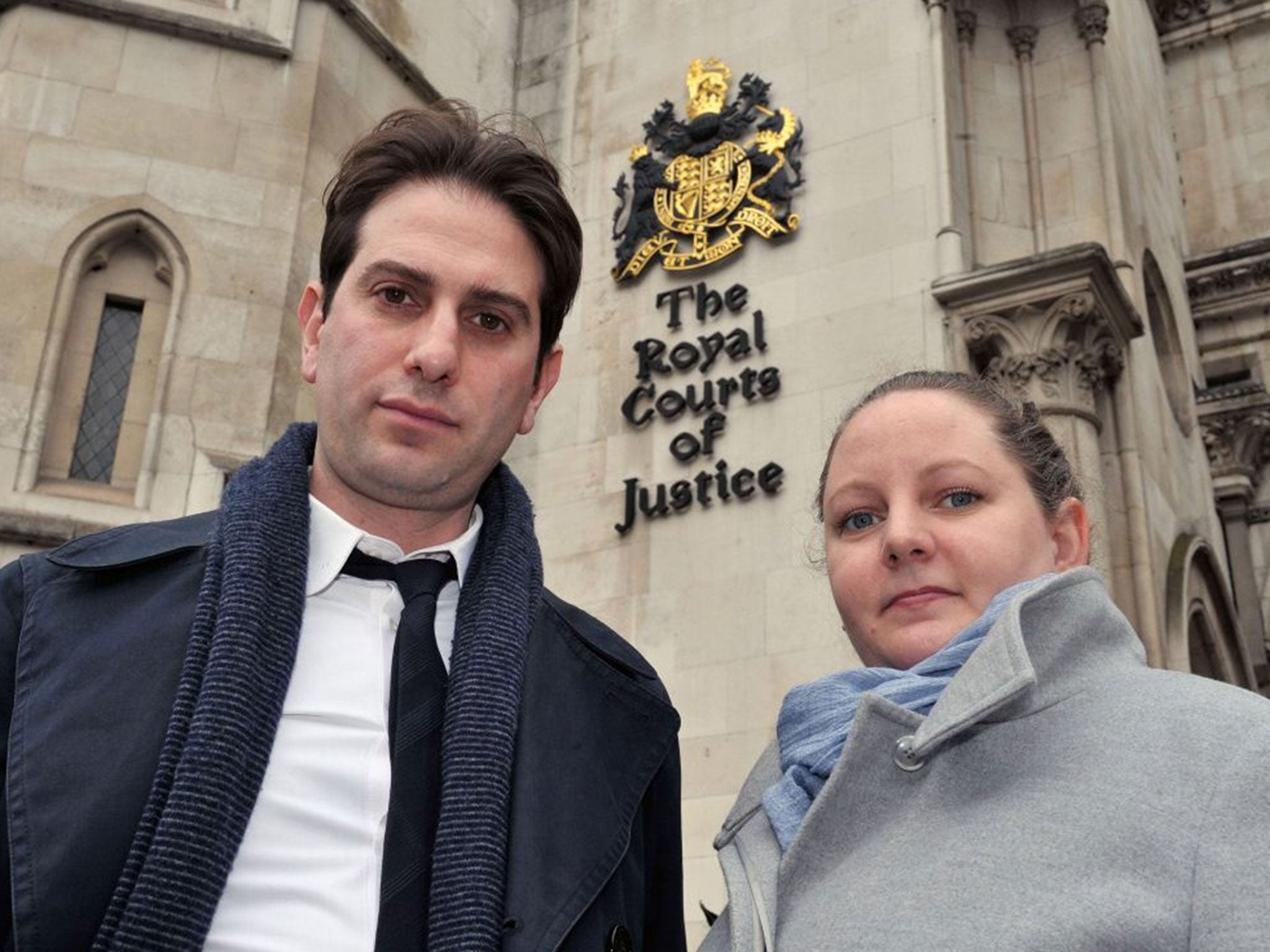The Independent's journalism is supported by our readers. When you purchase through links on our site, we may earn commission.
Why the LGBT community should get behind the couple campaigning for straight civil partnerships
We should be happy to expand the idea of diverse relationships, rather than the nuclear marriage pushed by traditional ideologies. Haven't LGBT campaigners, after all, always been behind diversity as well as equality?

When talking about “the LGBT community” as if it’s one group, it’s easy to make generalistic assertions. What unites us is that the differences in our gender and sexuality place us outside a mainstream.
So at first glance, the campaign to overrule the ban on same-sex civil partnerships is one that need not concern LGBT people. Yet it goes to the core of the kind of society that campaigners have fought to create.
Civil partnerships were devised as a halfway house to allow gay couples the advantages of marriage without antagonising traditionalists. Now, after the introduction of equal marriage, they have become a legal anomaly: they are an institution available to those who want a same-sex union, but not to heterosexual couples.
That unfairness kicked off Charles Keidan and Rebecca Steinfeld’s campaign for equality of civil partnerships (the couple were told this week that they could take their fight for a heterosexual civil partnership to the Supreme Court.) Both reject marriage as outdated and patriarchal. They are not alone in that viewpoint. In a country where common law marriage is only a myth, they want to make a commitment to each other which recognises their relationship without coming with all the sexist baggage of a traditional marriage. The news that their case will soon be heard by the Supreme Court is significant because the court only accepts a number of cases every year – so it’s judged this one to be important enough to consider.
There is a strong argument to overturn the ban on the grounds of equality. Campaigners won the equal marriage debate based on the idea that what is available for straight couples should be available for homosexual couples. The logic holds in reverse.
So the fact that the Government has refused to amend the Civil Partnership Act, allowing heterosexual couples to have that sort of union if they prefer, is extraordinary and illiberal. It appears that, in stressing the importance of traditional marriage, they are putting the institution before its supposed values. A government that wants parents to be able to choose the school they send their children to is stopping couples from choosing how they commit to each other. Sometimes irony is delicious, is it not?
The true yardstick by which we prohibit action in a democratic society should be whether or not it causes other people harm, and nothing more. There is no harm at all in straight civil partnerships.
The arguments go further. They are ones that LGBT people should recognise.
Opening up civil partnerships will further legitimise existing same-sex ones by making them a mainstay of society. They will no longer be a compromise but something those outside the LGBT community want. Gay and lesbian couples are therefore directly affected. We are all also indirectly affected.
In recent decades, the gay rights movement has campaigned for equality. Quite rightly, we have argued that everyone should exist equally before the law. But it was difference that made those campaigns necessary. Every Pride festival is a celebration of cultural diversity, rife with rejections of conformity. They are statements that sexual difference has encouraged a subculture that exists alongside but also enriches the mainstream.
In campaigning to create different ways for couples to commit, those who want equal civil partnerships are in the same sense rejecting uniformity. Their campaign is confronting rigid social attitudes and embracing the diversity that Pride embodies.
The question for LGBT people becomes whether that display of difference is merely superficial.
Equality is important but it is not enough. Different viewpoints enhance societies and groups: we make better decisions when we meet arguments that come from outside our mindset. Dissent from the majority holds an important place in any truly civilised society.
The triumph of the LGBT movement is not marriage equality but that more people are questioning and accepting sexual difference. Queer dissonant opinion has helped to create a more accepting society. It has forced questions that would otherwise have been avoided. It is not a given, though: the Trump counter-revolution displays its fragility. Any fight against uniformity can help cement LGBT diversity.
By accident, equal marriage created a small but important opportunity. LGBT people can be proud of our agenda for proper equality. We can be prouder still to campaign for diversity.
Graham Kirby is editor of Disclaimer. You can follow him on Twitter @grakirby


Join our commenting forum
Join thought-provoking conversations, follow other Independent readers and see their replies
Comments